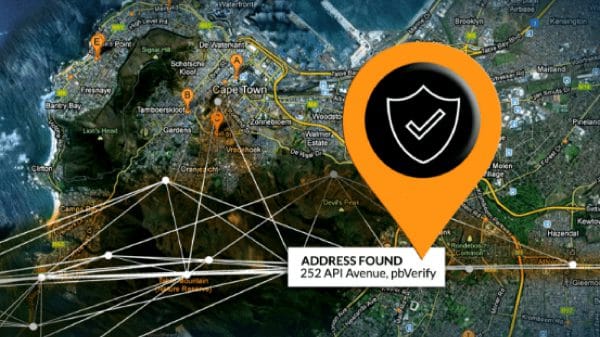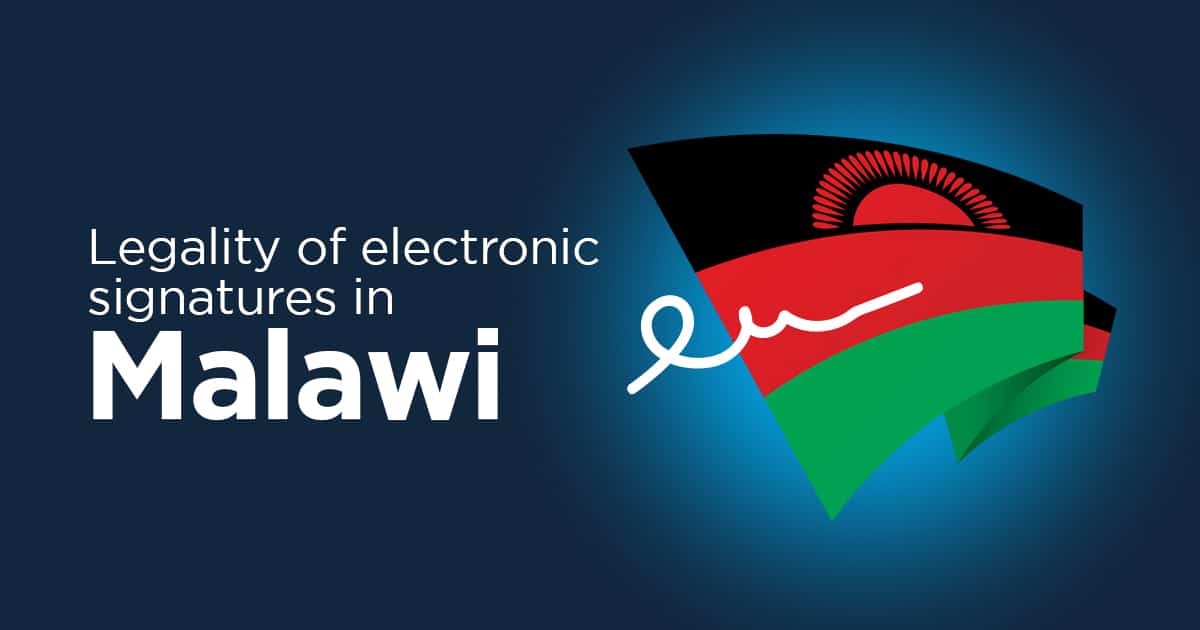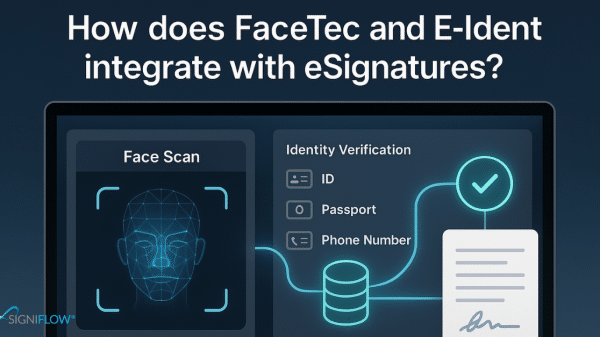Electronic signatures are convenient and efficient, revolutionising business operations in the digital age. Understanding electronic signatures’ legal framework becomes crucial as more companies transition to digital platforms.
This blog delves into the legality of electronic signatures in Malawi. Providing insights into their acceptance, regulatory framework, and practical implications for businesses and individuals.
By exploring the legality of electronic signatures in Malawi, we can better understand how they are recognised and utilised within the legal system. Furthermore, the legality of electronic signatures in Malawi ensures businesses can confidently adopt digital practices.
Lastly, understanding the legality of electronic signatures in Malawi is essential for effectively navigating the evolving digital landscape.
Legal Framework Governing Electronic Signatures in Malawi
In Malawi, electronic signatures’ legal recognition and regulation are primarily governed by the Electronic Transactions and Cyber Security Act (ETCSA) of 2016. This Act provides a comprehensive framework for electronic transactions and the security of electronic communications.
Key Provisions of the ETCSA
- Legal Recognition: The ETCSA explicitly recognises electronic signatures as legally valid and enforceable. Section 10 of the Act states that an electronic signature is as valid as a handwritten signature, provided it meets specific criteria.
- Criteria for Validity: For an electronic signature to be considered valid, it must be:
- Unique to the person using it.
- Capable of identifying the signatory.
- Created and affixed to the document in a way that ensures its integrity and authenticity.
- Linked to the data so that any subsequent changes can be detected.
- Trusted Service Providers: The ETCSA also outlines the role of trusted service providers, who are responsible for issuing digital certificates and ensuring the security and authenticity of electronic signatures. The Malawian government must accredit these providers.
Practical Implications for Businesses and Individuals
The recognition of electronic signatures in Malawi offers numerous benefits. This includes increased efficiency, cost savings, and enhanced security for businesses and individuals. Here are some practical implications:
- Efficiency and Convenience: Electronic signatures streamline the process of signing documents, eliminating the need for physical presence and reducing the time required for document processing.
- Cost Savings: By adopting electronic signatures, businesses can significantly reduce their paper, printing, and postage expenses.
- Security When implemented correctly, electronic signatures provide a higher level of security than traditional handwritten signatures. Encryption and digital certificates ensure the authenticity and integrity of signed documents.
- Legal Certainty: The ETCSA provides a clear legal framework so businesses and individuals can confidently use electronic signatures, knowing they have legal backing.
Best Practices for Using Electronic Signatures in Malawi
To ensure the effective and compliant use of electronic signatures, consider the following best practices:
- Choose Accredited Service Providers: Use trusted service providers accredited by the Malawian government to issue digital certificates and manage electronic signatures.
- Implement Strong Security Measures: Protect electronic signatures with robust security measures such as encryption and multi-factor authentication to prevent unauthorised access and tampering.
- Maintain Proper Records: Keep comprehensive records of electronically signed documents, including the date, time, and method of signature, to ensure traceability and legal compliance.
- Stay Informed on Legal Updates: Review updates to the ETCSA and related regulations regularly to ensure ongoing compliance with the legal requirements for electronic signatures.
Conclusion
The legality of electronic signatures in Malawi is well-established under the Electronic Transactions and Cyber Security Act of 2016. This legal recognition allows businesses and individuals to leverage digital solutions for greater efficiency and security. By understanding the legal framework and adhering to best practices, you can confidently incorporate electronic signatures into your operations, paving the way for a more streamlined and innovative future.





























